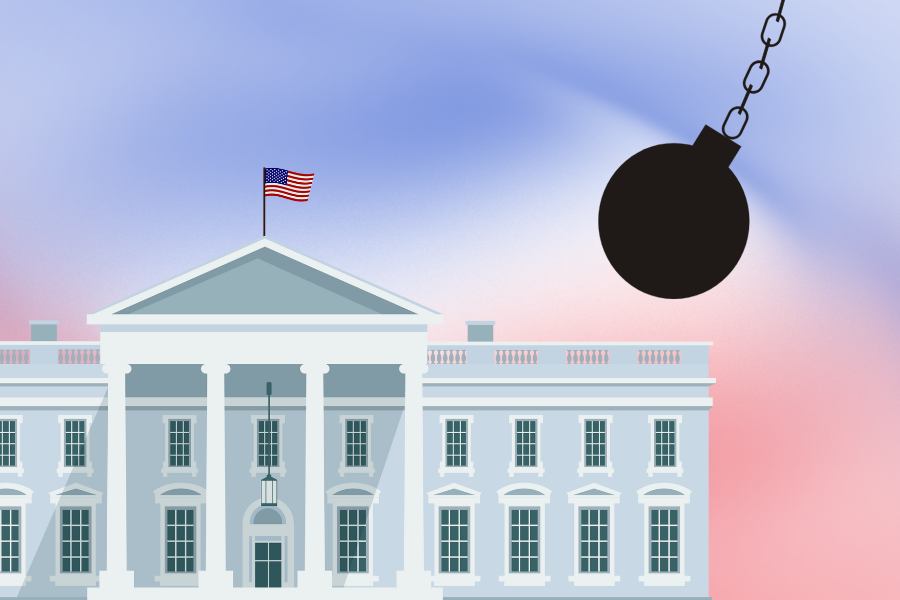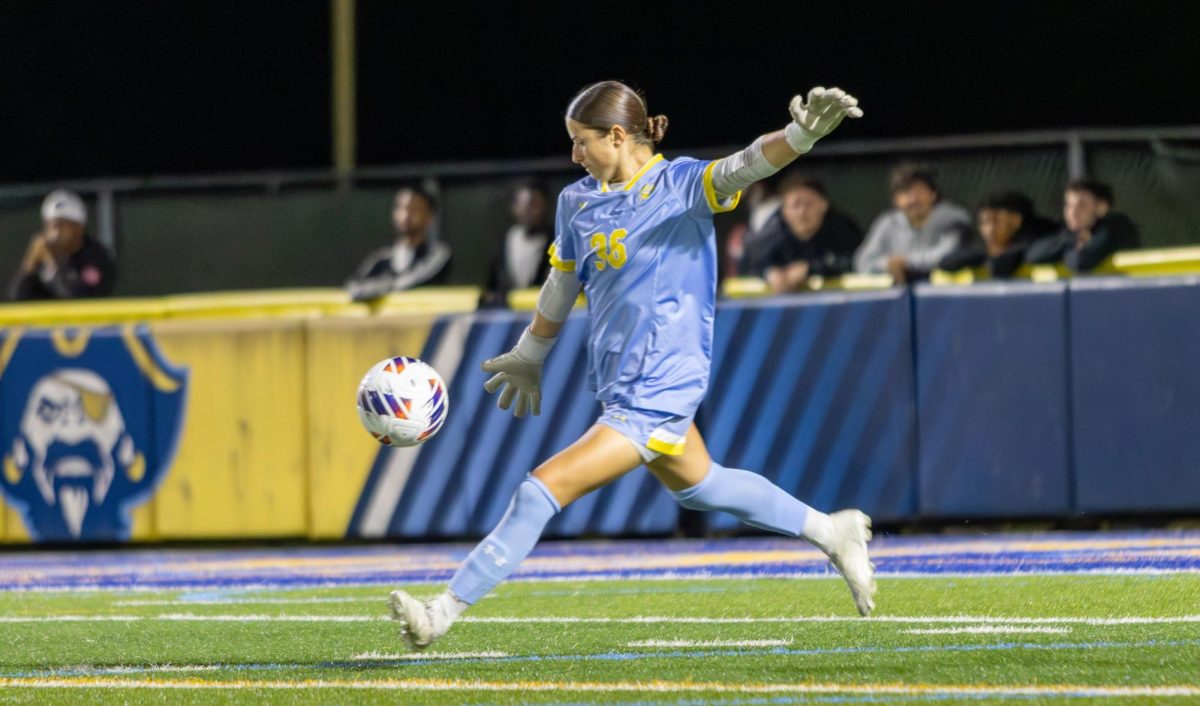Orange County Register journalist Luca Evans had his credentials revoked by the University of Southern California Football team for two weeks following an article published Sept. 14, but the punishment does anything but fit the crime. The Suffolk Journal stands in support of Evans, the Orange County Register and Southern California News Group in the name of transparency and the freedom of the press.
According to an article published by The Orange County Register, USC head coach Lincoln Riley issued the suspension following a situation where Evans reported on a conversation between two players prior to their media availability. Riley argued that it violated USC’s policy prohibiting reporting on anything outside of media availability in the practice facility.
USC Director of Football Communications Katie Ryan had brought prior concerns to the Southern California News Group, citing instances where Evans asked a question following the conclusion of a press conference and talked to players and coaches in non-media-designated areas of campus.
It seems reasonable that USC Athletics issued a written warning to Evans and the news group, but Riley’s decision to throw down the hammer so early in the season is excessive and should be alarming to journalists across the country.
The Southern California News Group submitted a letter to USC’s athletic director and president on Sept. 18, stating, “In football parlance, USC is looking to kick him out of multiple games for a false start. We ask that this suspension be rescinded immediately.”
Riley went on the record to say that Evans’ article was inaccurate and multiple policies were broken, yet refused to specify the inaccuracies and policies.
USC Athletic Director Jennifer Cohen replied with the decision to uphold the suspension.
“As an institution, USC prides itself on treating the media as a respected partner and key constituent,” Cohen said. “We understand the responsibility of reporters is to fairly and objectively cover stories, news events and their respective beats. As you know, our media policies exist to protect our student-athletes and promote a culture of trust that is critical to building successful programs.”
Journalism is an essential tool because it keeps people informed on what’s happening in their communities, and on an even larger scale, the world. While it’s understood that schools need regulations in place, especially among larger programs, to protect their athletes, there needs to be a certain level of offense or repetition to warrant a suspension so early in the season.
There should also be a level of responsibility put on the players and coaches to enforce these boundaries. Yes, Evans was said to have talked to players outside media available areas and asked a question following the conclusion of a press conference. If it was so much of a problem, the athletes and coaches have the right to refuse to comment on the grounds of the privacy regulations set for their safety. If they choose to engage, that should not come back on the reporter.
If the offenses committed by Evans were enough to warrant a two-week suspension, Riley should be fully prepared to put his money where his mouth is. Refusing to name the inaccuracies and offenses hinders the transparency of USC, and ultimately creates barriers to ethical journalism. Not only do these restrictions impede upon Evans’ beat, but not precisely knowing where he went wrong keeps him from learning from his mistakes, possibly setting him up for more suspensions.
The people of the world depend on journalism to keep them accurately informed, but in order for that to occur, journalists need to depend on being able to be in the room where it happens.




















